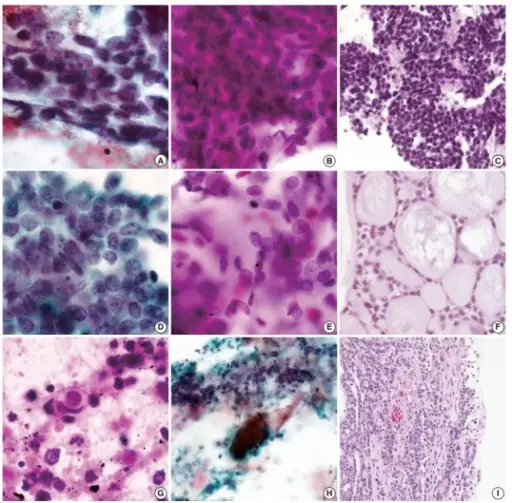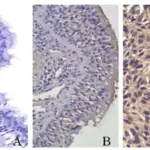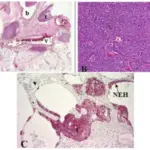Small cell carcinoma of the lung is a poorly differentiated, rapidly growing cancer of the lungs, a neuroendocrine cancer.
What is the Pathology of Small Cell Carcinoma of the Lung?
The pathology of small cell carcinoma is:
-Etiology: The cause of small cell carcinoma is mostly tobacco smoking since all those who are diagnosed have a history of smoking.
-Genes involved: tumor suppressor genes P53, EGFR, and KRAS genes.
-Pathogenesis: The sequence of events that lead to small cell carcinoma of the lung include chromosomal changes causing dysregulation of tumor suppressor genes.
-Histology: The histology associated with small cell carcinoma shows a distinctive round shape with a blue color upon staining.
How does Small Cell Carcinoma of the Lung Present?
Patients with small cell carcinoma typically present with shortness of breath, fatigue, weight loss cough, and bone pain. Occurs in those aged between 60-80 years old. It affects both genders but now mostly young women and equally to all races and ethnic groups.
How is Small Cell Carcinoma of the Lung Diagnosed?
Small cell carcinoma is diagnosed through lung cancer screening, using the MRI which creates a clear image compared to chest x-ray or CT scans. for laboratory tests, a biopsy is taken for sampling to give clear results.
How is Small Cell Carcinoma of the Lung Treated?
Small cell carcinoma is treated by pulmonary lobectomy to remove the affected lobe of the lung. Antineoplastics and alkylating agents may also be needed.
What is the Prognosis of Small Cell Carcinoma of the Lung?
The prognosis of small cell carcinoma is poor.



